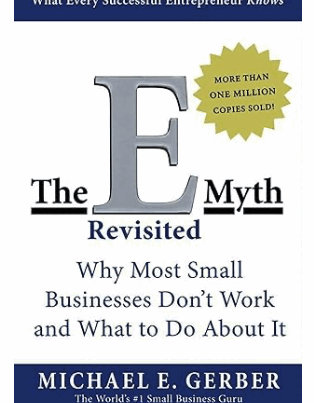Last Updated on December 26, 2024 by Dave Schoenbeck
Many small business owners, especially entrepreneurs new to owning a business, need help understanding the importance of creating an operating agreement when first starting. Clarity on the critical issues and procedures is essential, especially for a family business or when going into business with friends.
We assume that because we get along well with our business partners, we can avoid the obstacles that usually sink a business. Unfortunately, this could not be further from the truth. A business operating agreement is like a will—you might not like to think about it, but if you don’t have one, you’re setting yourself up for future resentment amongst your business partners.
Much like a will, if you don’t have an operating agreement, you might be at the whim of state laws regarding how your business will be managed if a conflict arises. Of course, you’ll need a lawyer to help you assemble one, but today, I want to impart the importance of an operating agreement. Here’s what you need to know.
What Is a Business Operating Agreement?
A small business operating agreement is a legal document outlining the main terms and conditions of managing a company. The contract includes who owns and operates the company, its structure, its finances, and more.
In addition to being required by law for many types of business, an operating agreement protects your assets from liability and documents all management policies. It also discusses what happens in the event of dissolution. Investors or buyers often demand an operating agreement before showing genuine interest in your business.
Every organization needs a business operating agreement, including family businesses, sole proprietorships, LLCs, partnerships, joint ventures, and strategic alliances. Once you understand the importance of an operating agreement, you should know what to expect when drafting one.
How Do You Structure an Operating Agreement?
Ultimately, a small business operating agreement is in the best interest of everyone involved with a company. Even a sole proprietor can benefit from an operating agreement if their business grows and changes over time.
But what should be in a business operating agreement? An experienced business attorney can explain the importance of each section and help you determine the precise wording. Each business will have slightly different needs. In general, you can expect an operating agreement to cover the following topics:
- Introduction: The operating agreement should begin with an introductory segment that explains the purpose and scope of the agreement and identifies all parties involved.
- Formation: Next, include basic information such as the date of formation, the name of the business, and the terms of the agreement.
- Structure: This section will cover the basics of the company’s creation, including its structure, who the leading players are, its purpose, and the story of its foundation.
- Membership interests: Here, you can include the members and their ownership percentages, as well as other pertinent information about member interests, such as buy-sell provisions, the procedure for admitting new members, and the process for transferring membership interests if desired.
- Member roles and duties: It’s a good idea to talk about each of your company’s key members’ roles, including listing yourself as the owner. Include each person’s duties, contributions, and potential voting rights. You should also touch on how to add or remove members if necessary. A critical section is a specific process for making business decisions and disagreements about decisions and direction.
- Voting: What is the voting process? What are the requirements around meeting frequency and attendance? How will decisions be made when a consensus cannot be reached?
- Capital contributions: Discuss the initial capital contributions for members and the procedure for additional contributions later.
- Profits and losses: How will profits and losses be allocated among members? How will the finances be distributed? Who will take on any losses you might encounter?
- Distributions: Your business operating agreement should cover the timing and frequency of distributions and the procedures for special distributions.
- Dissolution: Discuss how assets will be distributed upon dissolution and what events could trigger a dissolution. No one wants to think about the dissolution of their company, but much like a prenup, this will help protect you if it happens. No matter what the future holds, you want to be able to dissolve your business on your terms.
- Operations management: You can cover your business’s day-to-day operations and management responsibilities here. If necessary, include details like employment agreements and the process for appointing officers.
- Record-keeping: How will data be stored and managed? Who will keep your books? What organizational methods will you use? What is the procedure for financial reporting? Who will have access to your records?
- Disputes: Sometimes, disagreements among members can become contentious. Write up a procedure for resolving these disputes, whether that involves mediation, arbitration, or litigation.
- Amendments: If necessary, how will the business operating agreement be amended? Will unanimous consent or a majority vote be required?
- Miscellaneous: This section would be for anything not previously covered in your business operating agreement.
- Signatures: All members or managers must sign and date your business operating agreement.
Consulting with a qualified business attorney is recommended to ensure the operating agreement adequately addresses all relevant issues and provides the necessary protections for the members and managers. Each section of your business operating agreement should be carefully drafted and customized to fit the specific needs and circumstances of the LLC.
Regardless of your business’s size, crafting an airtight operating agreement is the best way to protect yourself, your members, and your organization’s future. Covering all your bases upfront will save you the headache of figuring out your next steps in the heat of a future crisis.
If you still have questions about your business operating agreement, a business coach can help you understand the importance of an operating agreement for your company. Please fill out my contact form for a complimentary video call to discuss how to get started. You can also click here to subscribe to my free weekly blog articles about entrepreneurship, business, and more.
Coach Dave
- Agonizing Reasons Why We Procrastinate and What You Should Do About It - December 18, 2025
- The Cheat Code for How to Build an Effective Winning Team - December 11, 2025
- A Practical Guide on How to Create a Business Strategy That Works - December 4, 2025



This is such an important topic, especially for new business owners who often skip the operating agreement and face confusion down the road. We’ve supported clients during bookkeeping clean-ups where unclear agreements led to disputes over financial responsibilities or profit-sharing. Having a solid operating agreement not only clarifies ownership and duties—it also makes our job on the financial side much smoother. Thanks for breaking this down so clearly.